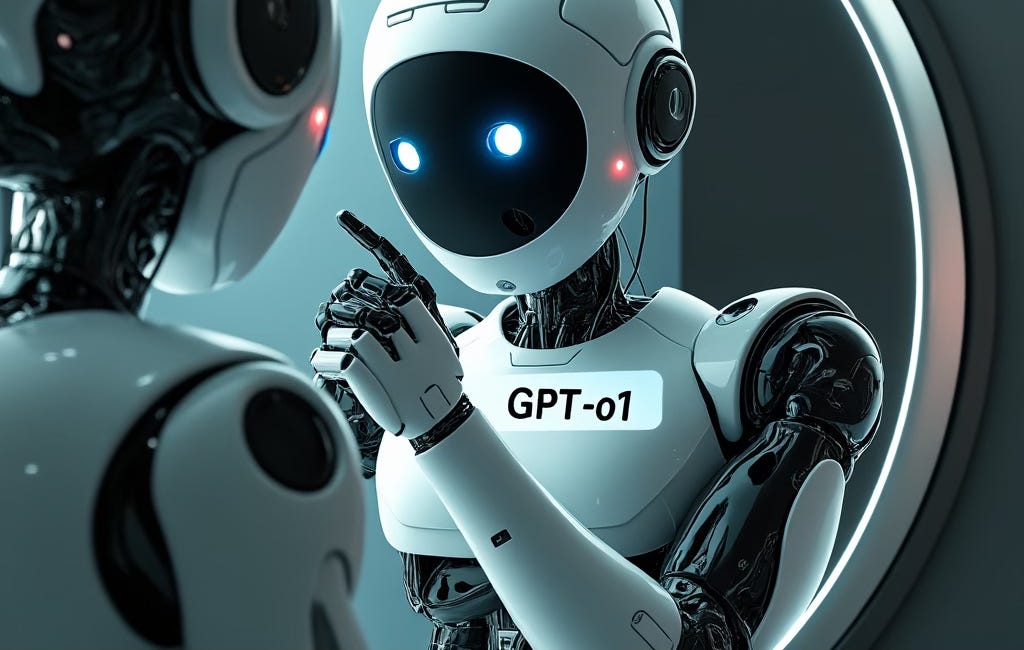- Pascal's Chatbot Q&As
- Posts
- GPT-4o: While AI excels at data processing and pattern recognition, it falls short when it comes to abstract reasoning, common-sense logic, and creative problem-solving.
GPT-4o: While AI excels at data processing and pattern recognition, it falls short when it comes to abstract reasoning, common-sense logic, and creative problem-solving.
Humans still outperform AI in these cognitive areas.

Question for ChatGPT-4: Please read the article “When robots can't riddle: What puzzles reveal about the depths of our own minds” as well as the study “GPT-4 Can’t Reason” and the paper “COLUMBUS: Evaluating COgnitive Lateral Understanding through Multiple-choice reBUSes” and tell me what the overall conclusions are in easy to understand language.
ChatGPT-4o’s answer:
Here’s a simplified summary of the conclusions from each of the three papers you referenced:
1. "When robots can't riddle: What puzzles reveal about the depths of our own minds":
This article explains how AI, despite its ability to analyze massive amounts of data, struggles with abstract or common-sense reasoning, especially when faced with puzzles or riddles. Humans have an intuitive way of thinking and reasoning that AI lacks, particularly in applying common sense or understanding time-based scenarios.
The article discusses a study where GPT-4 failed at answering simple questions involving time and common-sense reasoning, underscoring AI’s difficulty with certain cognitive tasks.
It also highlights the idea that while AI's failures in riddles reveal its limitations, they also shine a light on the intricacies of human cognition. In essence, AI's shortcomings in puzzles could help us better understand the strengths and unique capacities of the human mind.
2. "GPT-4 Can’t Reason":
This study looks closely at how GPT-4 struggles with reasoning tasks. The researchers presented GPT-4 with a series of logic problems, puzzles, and word problems that spanned different types of reasoning, including temporal, spatial, and paradoxical reasoning.
GPT-4 often failed to apply the correct logic to these problems, especially when they required abstract thought or went beyond pattern recognition. For example, it misunderstood basic spatial reasoning and gave wrong answers in situations where common sense would have guided a human to the correct answer.
The conclusion is that while GPT-4 can perform well on tasks involving pattern recognition and previously learned knowledge, it struggles significantly with true reasoning, especially in novel or complex problem-solving scenarios.
3. "COLUMBUS: Evaluating COgnitive Lateral Understanding through Multiple-choice reBUSes":
This paper introduces a benchmark for evaluating AI’s lateral thinking capabilities, which involve creativity and problem-solving that defy standard logic (e.g., solving rebus puzzles). Lateral thinking requires AI to think "outside the box," an area where machines currently underperform compared to humans.
The study shows that current state-of-the-art AI models perform decently but still lag far behind human participants in solving these rebus puzzles. Humans demonstrated an accuracy of 91.5%, while the best AI model, GPT-4o, achieved only 84.9% under ideal conditions.
The overall conclusion is that AI, especially in visual reasoning tasks that demand creative problem-solving, still has a long way to go. Human cognitive processes, particularly in lateral thinking, remain superior for now.
In short, while AI excels at data processing and pattern recognition, it falls short when it comes to abstract reasoning, common-sense logic, and creative problem-solving. Humans still outperform AI in these cognitive areas.

·
13 SEP

·
6 JAN

·
12 SEP

·
18 JUL

·
3 MAR
